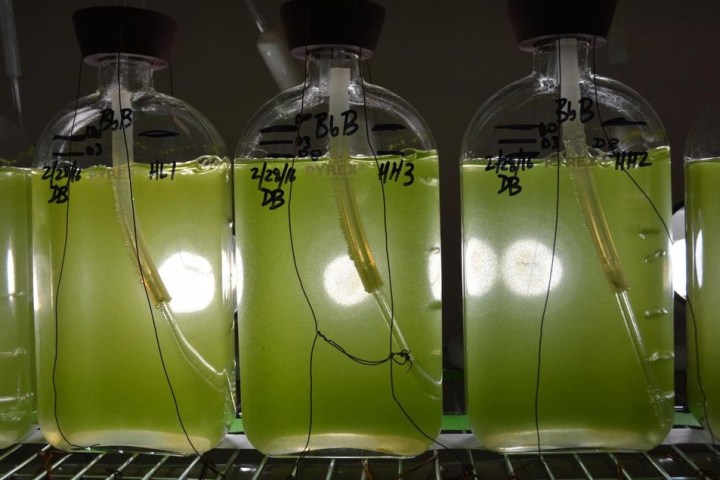
Biofuels are a form of hydrocarbons derived from biological processes sources. They require combustion and are not as environmentally friendly as solar or wind power, but they are compatible with our existing oil and gas-based fuel infrastructure
Botryococcus braunii is a pyramid-shaped algae found almost worldwide that is capable of producing hydrocarbons as part of its standard metabolism. These hydrocarbons account for up to 40 percent of the organism’s dry weight, and also are excreted outside the cell. Though capable of making hydrocarbons that can be used as fuel source, they don’t produce enough of it to be a suitable supply of commercial biofuels. Despite this limitation, scientists still are interested in studying the algae and exploring the mechanism by which it produces its hydrocarbons.
In a study published recently in Nature Communications, the researchers report their discovery of an enzyme called lycopaoctaene synthase, which is involved in oil production. Inside the slow growing Botryococcus braunii, lycopaoctaene synthase only produces a small yield of hydrocarbon, but it is capable of much more. Once the enzyme is inserted into a faster-growing organism, researchers can use the system to increase the rate of production of the hydrocarbon.
“Maybe if we can transfer the genetic information to make these oils into quicker-growing organisms like other algae that grow a lot quicker or a land plant that can produce large amounts of biomass, we can have them produce oil for us,” said author and scientist Timothy Devarenne who was part of the team of scientists from Texas A&M University, the University of Arizona, Japan Science and Technology, and China’s Biotechnology.
Editors' Recommendations
- Genetically engineered goats could be the key to mass-producing cancer drugs
- Microalgae could be key to efficient life support system in space




